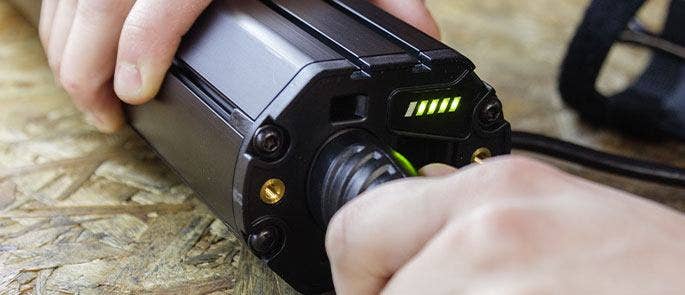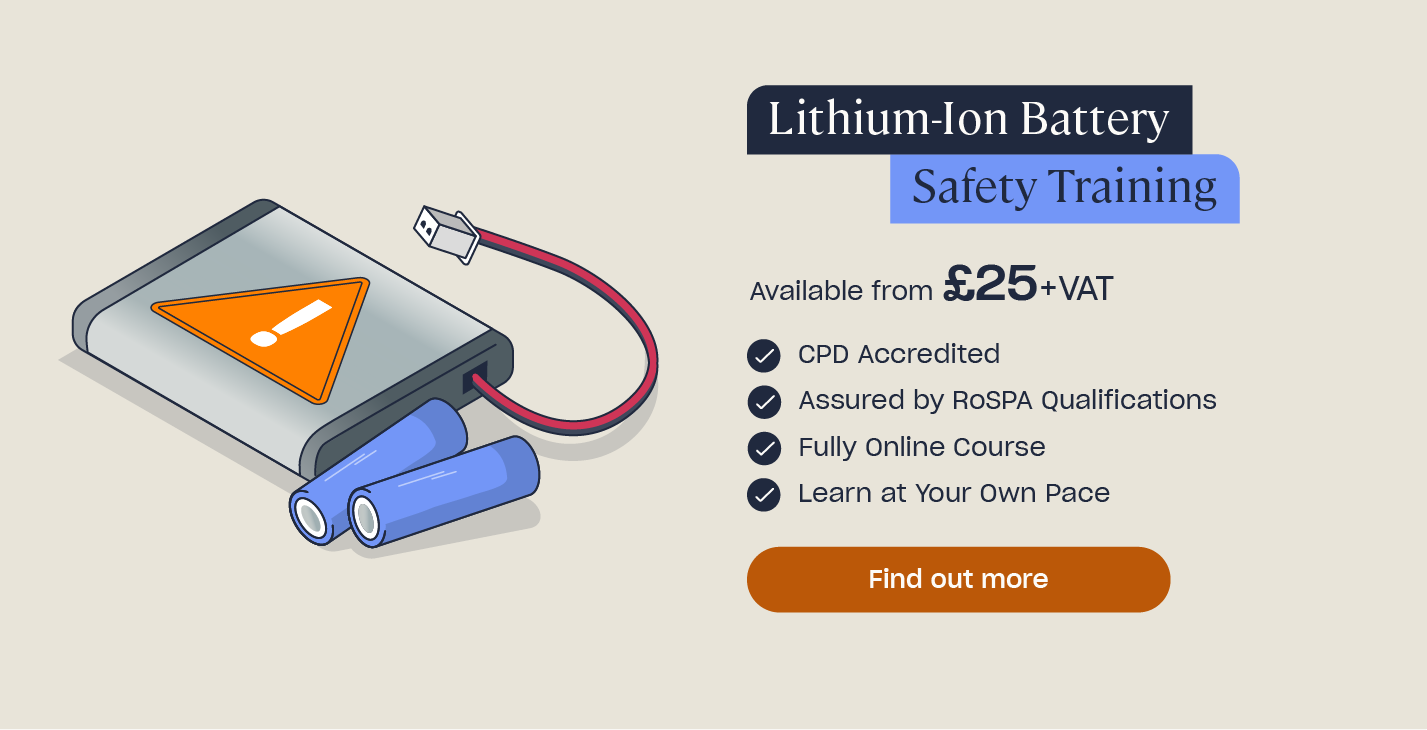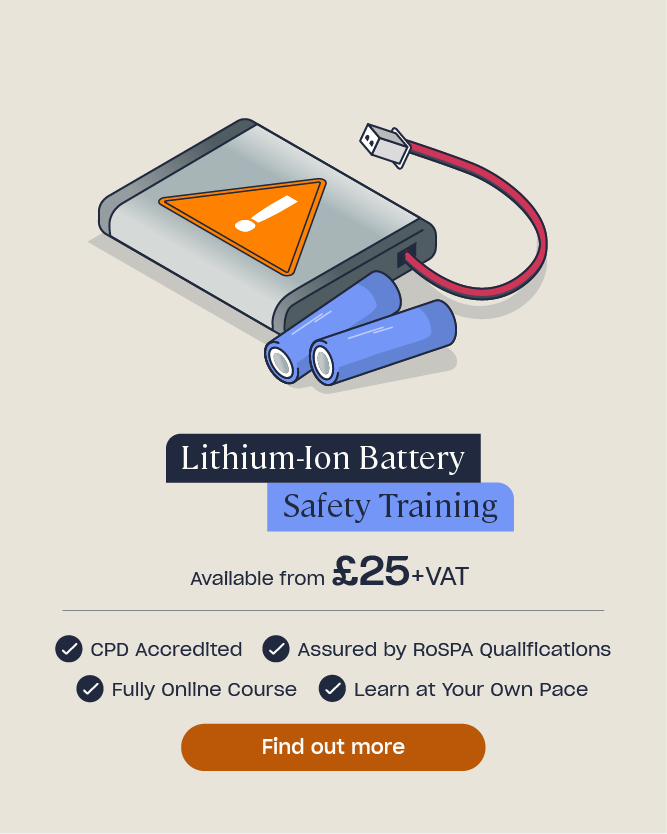A Guide to Lithium-Ion Battery Fire Safety
Lithium-ion batteries are widely used in daily life, powering everything from smartphones and laptops to electric vehicles and tools. However, lithium-ion batteries also come with safety risks and can be a serious fire hazard if damaged, misused or improperly stored. In this article, we’ll outline why lithium-ion batteries catch fire, how to help prevent such incidents and what to do in the event of a lithium-ion battery fire.
Why do Lithium-Ion Batteries Catch Fire?
Lithium-ion batteries catch fire as a result of thermal runaway. This is when the temperature within a battery cell rises uncontrollably, usually as a result of damage, overheating, overcharging or a manufacturing fault. When the cell fails, it releases flammable gases and heat, which may ignite and cause nearby cells to also fail.
The temperatures involved in these reactions can exceed several hundred degrees and the sparks generated inside the battery can ignite gases, leading to rapid fire spread and, in some cases, explosions. Once a lithium-ion battery enters thermal runaway, it’s extremely difficult to control as it happens so quickly.
How to Prevent Lithium-Ion Battery Fires
The risk of lithium-ion battery fires can be reduced through good practice at every stage of the battery’s lifecycle. This includes safe manufacturing, correct use, proper storage and responsible disposal. The steps below can help to reduce the likelihood of a lithium-ion battery fire in the workplace or at home:
Lithium-Ion Batteries Manufacturing Faults
To prevent lithium battery fires caused by manufacturing faults:
- Only purchase lithium-ion batteries and equipment from reputable suppliers.
- Ensure that batteries comply with recognised safety standards.
- Avoid counterfeit or unbranded products, as these may lack essential protective mechanisms.
Use of Lithium-Ion Batteries
To prevent lithium battery fires caused by unsafe use:
- Follow the manufacturer’s instructions for charging and operating the device.
- Only ever use the correct charger and avoid overcharging.
- Keep batteries away from excessive heat, direct sunlight and flammable materials.
- Inspect batteries regularly for signs of damage, swelling or leaking.
- Avoid crushing, puncturing or dropping batteries, as physical damage can cause internal faults.

Storage of Lithium-Ion Batteries
To prevent lithium battery fires caused by incorrect storage:
- Store batteries in a cool, dry location away from direct sunlight and sources of heat.
- Do not store large quantities of batteries close together, as this can increase the spread of fire if one fails.
- Separate charged and discharged batteries, and avoid short-circuiting by keeping terminals covered or isolated.
- Maintain good ventilation in storage areas.
Disposal of Lithium-Ion Batteries
To prevent lithium battery fires caused by unsafe disposal:
- Never dispose of lithium-ion batteries in general waste or household bins.
- Take used or damaged batteries to authorised recycling or disposal facilities.
- Handle leaking or damaged batteries with care, using protective gloves if necessary.
- Follow local regulations and workplace procedures for hazardous waste disposal.
How do you Put Out a Lithium-Ion Battery Fire?
Lithium-ion battery fires are complex and dangerous and require specialised handling. Only trained personnel or emergency responders should attempt to extinguish a lithium-ion battery fire, and only when it is safe to do so.
If a fire occurs:
- Raise the alarm immediately and evacuate the area.
- Call the fire service without delay on 999.
- Do not attempt to move a burning battery or device.
- If safe, isolate nearby equipment or materials to prevent the fire from spreading.
Water can sometimes be used to cool surrounding areas and prevent the spread of fire, but water isn’t suitable for extinguishing the battery itself which requires specialist fire extinguishers and procedures. In all cases, prevention is the best defence against serious lithium-ion battery fires.
Lithium-ion batteries must be handled with care to avoid fire risks. Understanding how and why these fires occur, following best practice in battery use and knowing how to respond safely in an emergency can all help to reduce the danger. With responsible use, storage and handling, the risk of lithium-ion battery fires can be minimised in workplaces and at home.
Further Resources:
- Lithium-Ion Battery Safety Training
- Health & Safety Policy: Free Template
- Fire Safety Rules and Regulations in the Workplace







